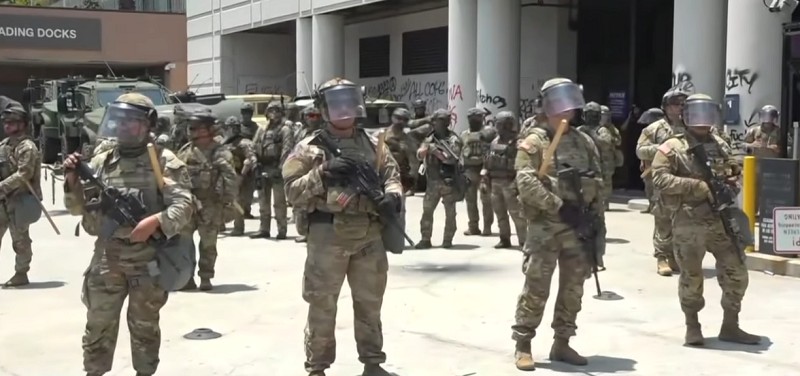Use of Troops in Immigration Raids and Protest Response Violated Federal Law
Federal Judge Charles Breyer ruled Tuesday that the Trump administration violated the Posse Comitatus Act when it deployed National Guard troops to assist immigration enforcement and respond to protests in Los Angeles. His order takes effect on Friday and does not require any remaining troops to be pulled back immediately.
California sued after Guard units were sent to Los Angeles over the summer despite objections from Gov. Gavin Newsom and local officials. State lawyers argued the deployment crossed the line into domestic law enforcement, barred by federal statute. Government attorneys countered that the Guard was protecting federal personnel and property under presidential authority, not enforcing civilian laws.
In a sharply worded decision, Breyer said the administration “willfully” exceeded legal limits, employing troops for functions their own training materials prohibit, including patrols and crowd-control duties. He also faulted officials for failing to meaningfully coordinate with state and city leaders and for coaching federal agencies on how to word assistance requests.
The ruling lands as Trump has talked about sending Guard units to other Democratic-led cities such as Chicago, Baltimore, and New York, and after he exercised direct control over Guard forces in Washington, D.C. He also tied his Los Angeles deployment decision to unrelated announcements, including the siting of U.S. Space Command headquarters.
Testimony at trial detailed how Guard members joined a show-of-force operation at MacArthur Park and accompanied federal agents on raids at two state-licensed marijuana nurseries in Ventura County. Army Maj. Gen. Scott Sherman, who initially oversaw the Los Angeles mission, said he raised concerns that the deployment could run afoul of the Posse Comitatus Act. Troops had been trained on the law and given lists of banned activities, he said, including security patrols, traffic control, crowd control, and riot control.
Sherman testified he was told a “constitutional exception” allowed those activities when troops were protecting federal property or personnel. Breyer rejected that interpretation in his ruling. Further proceedings are expected after the order takes effect on Friday.













